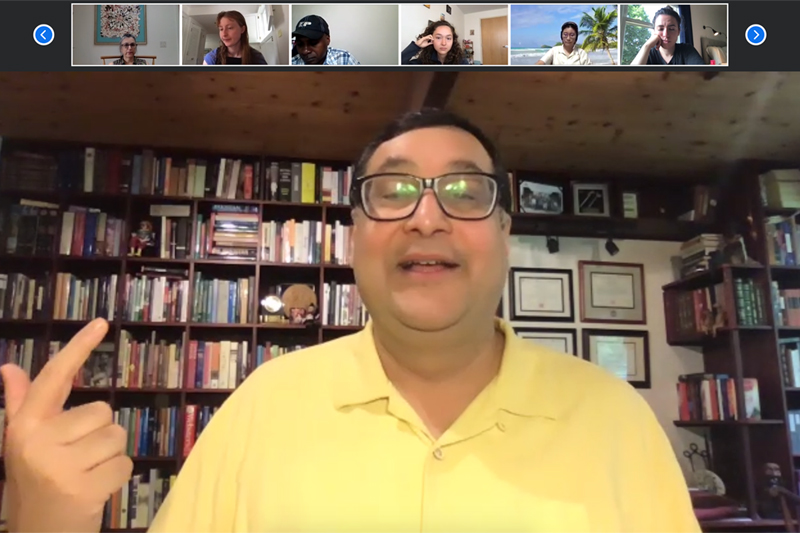Graduate Summer Fellows Participate in Policy Workshop with Dean Adil Najam

During the past two weeks, the 2020 Pardee Center Graduate Summer Fellows have participated in a policy workshop with Pardee School of Global Studies Dean Adil Najam, as well as virtual discussions with Faculty Associates Prof. Les Kaufman and Prof. Joseph Harris.
The policy workshop hosted by Dean Najam on July 8 centered around two books the Fellows were asked to read this summer: Nudge: Improving Decisions About Health, Wealth and Happiness and The Black Swan: The Impact of the Highly Improbable. He emphasized the importance of studying policy, itself, as a subject, as opposed to studying policy only in relation to particular subject areas. Drawing on concepts from the books, the Fellows were asked to explore the ways that policy plays a role in their own research. Dean Najam urged them to think about policy as “the levers of change,” not as merely a series of government regulations.
On July 1, Prof. Kaufman discussed the Coupled Human and Natural Systems (CHANS) program, a research effort he leads at the Pardee Center. The CHANS program investigates how governance, social, and economic systems are intricately connected to natural systems, how we can better explore those connections, and how to better understand the trade-offs that confront those making resource management decisions. The research encompasses four geographic areas: Cambodia (Tonle Sap and the Mekong Delta), East Africa (Lake Victoria), South Florida and Belize (the tropical west Atlantic and Caribbean Basin), and the Gulf of Maine.
On July 13, Prof. Harris discussed his research on expanding healthcare access in developing countries. He explained his work as a Pardee Center Faculty Research Fellow, which included a 2017 symposium and a resulting report exploring the current and future contributions of three social science disciplines (anthropology, political science, and sociology) to global health. He also discussed the main findings from his 2017 book, Achieving Access: Professional Movements and the Politics of Health Universalism, as well as his current book project in which he argues that Thailand has created a new type of developmental model allowing for the country’s considerable influence on global public health policy.
Learn more about this year’s Fellows and their research projects.